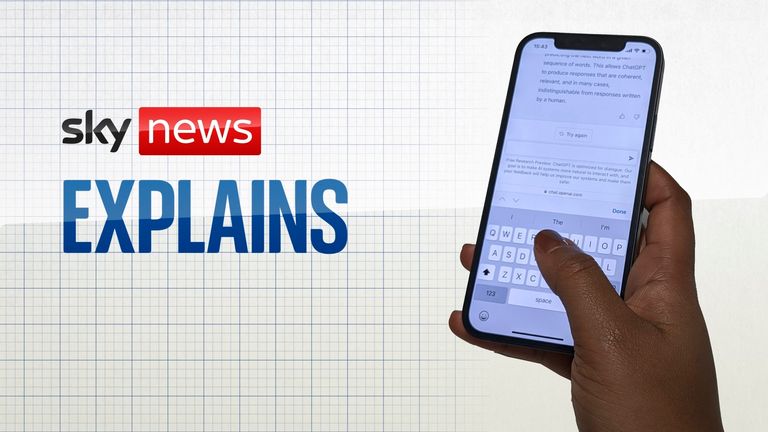People waiting months for mental health treatment have been warned not to use chatbots as a quick replacement.
A quarter of patients are now waiting more than 90 days between their first and second NHS talk therapy appointment, according to analysis by the charity Future Care Capital (FCC).
free meeting, delivered Support is provided by fully trained and certified practitioners designed to support those suffering from conditions such as anxiety and depression.
But thousands are also facing long delays Demand for treatment has increased since the pandemic.
A recent FCC survey found that 87% of people with mental health issues are now using apps for help, with 31% relying on such tools because they don’t want to wait for in-person support.
Dr. Lauren Evans, director of research and innovation at the FCC, said such resources could play a role, but cautioned against the increasingly popular chatbots that have Recommended as an alternative to search engines.
“While chatbots are already being used to guide telephone inquiries or provide basic information, this is a completely different attempt to gauge not just what someone is saying, but how they are saying it and what that might mean,” she told Sky TV news.
Digital tools ‘must be tested to high standards’
Since the pandemic, Google has reported an increase in the number of searches related to mental health, especially depression and anxiety.
People have also turned to social media for support. Research from Luna, an app designed to help teens with mental health issues, shows that more than 8 in 10 young people are using TikTok to diagnose their issues.
According to the FCC, people are now more than twice as likely to find digital mental health tools on social media than through their GP.
Chatbots released specifically as digital therapists have also grown in popularity in recent years — such as Woebot and Wysa, which are highly rated in both Apple’s and Google’s app stores.
But new language models like the successful Chat GPT Algorithms from OpenAI are not designed for this purpose. Still, asking questions about mental health sees it confidently delivering answers — even when they’re wrong.
Dr Evans warned: “Any such technology would need to be rigorously tested to a high standard – it could prove revolutionary.
“But it should not be used as a substitute for face-to-face treatment with a medical professional.”
read more:
Google unveils new AI chatbot
Microsoft upgrades ChatGPT feature for Bing
“People want the human touch”
British charity Samaritans, which runs a free 24/7 helpline for struggling people, has also highlighted the importance of human interaction when seeking mental health support.
Kay, a volunteer who signed up after receiving help during her own battle with anxiety, told Sky News: “I don’t think chatbots will be entirely useful because you just don’t know what calls you’re going to answer.
“When people talk, they want a human touch, to feel like they’re talking to a real person who can empathize.”
read more:
10,000 calls a day – but they all start the same
Digital Mental Health Resource Guide
To ensure that people seeking help online find the right resources, the FCC has launched a new comprehensive guide to trustworthy apps and platforms.
A guide to digital mental health tools allows users to filter resources based on conditions such as addiction, anxiety, stress, body dysmorphia, eating disorders, and self-esteem.
“Digital tools are not a substitute for face-to-face mental health treatment,” Dr. Evans emphasized, “but can be used in conjunction with professional support and may help people wait while they are in treatment.”
Anyone feeling emotionally distressed or suicidal can contact Samaritans for help on 116 123 or jo@samaritans.org in the UK. In the U.S., call your area Samaritan chapter or dial 1 (800) 273-TALK

